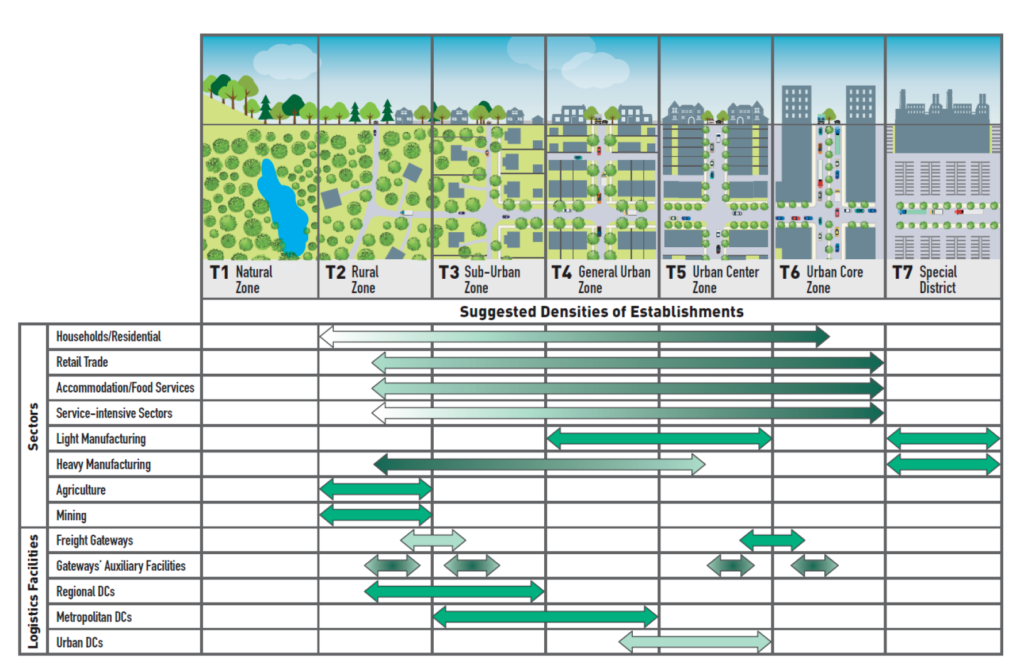Land-use planning and policymaking are central to how communities manage their economic activity and the social and environmental impacts these activities produce. Because of this central role, enhancing land-use practices better to incorporate the needs and impacts of freight activity has a strong potential to improve the efficiency of their associated supply chains.
A research paper summarizes the key findings of the NCFRP project on “Freight-Efficient Land Uses (FELUs).” This is probably the most comprehensive research project to date aimed at designing policy procedures to foster land uses that minimize the private and external costs associated with the production, transportation, and consumption of goods.

As part of the paper, the authors define freight efficient land uses, identify the principles that should guide the process toward FELUs, outline the process to develop FELU plans and programs, and propose to analyze the freight efficiency of current and future land uses in their jurisdictions, and identify complementary initiatives (both land-use and transportation related) that could help mitigate the negative impacts on local communities.
Land-use planning is essential to fostering quality of life and harmony among the myriad social and economic activities that take place and compete for space in urban and metropolitan areas. However, if not well thought out, land-use plans can detrimentally affect private commercial supply chains and local communities.
A land-use plan that, for instance, artificially increases the physical separation between the distribution centers that handle e-commerce deliveries and the intended receivers—households and commercial establishments—in the city center will increase the vehicle miles traveled for e-commerce traffic. This, in turn, will increase congestion, emissions, and accidents. In such cases, reducing the distance is likely to be socially beneficial, as it will reduce both the private costs and the externalities that affect local communities and the environment.
The authors discuss three illustrative cases that provide evidence on how land-use decisions produce unintended effects on local communities. The paper explains how decision-makers can carefully consider the FELU principles in their planning and avoid or mitigate such negative results.
Taken together, the concepts and principles presented in this paper provide guidance to transportation and land-use professionals and researchers about the potentially transformative role that land-use policy could play in improving the sustainability of supply chains, using fostering FELUs.
Source: Holguin-Veras J, Ramirez-Rios D, Ng J, Wojtowicz J, Haake D, Lawson CT, Calderón O, Caron B, Wang C. Freight-Efficient Land Uses: Methodology, Strategies, and Tools. Sustainability. 2021; 13(6):3059. https://doi.org/10.3390/su13063059
